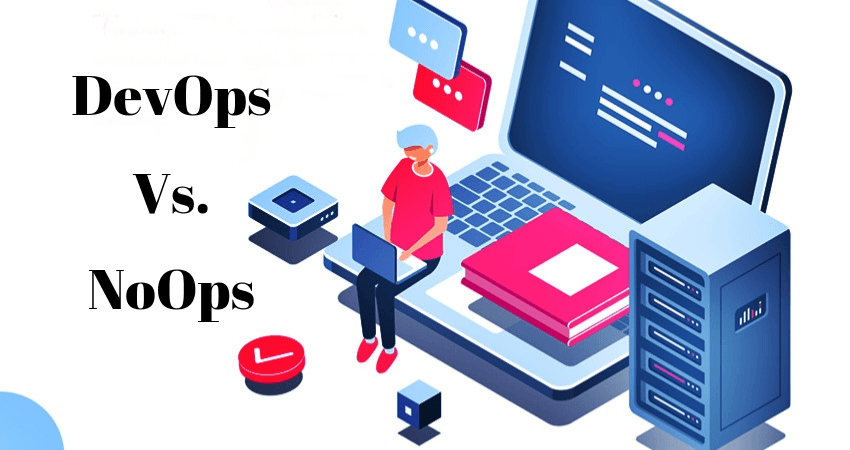What is DevOps
Software Developer Operations process or as per general terminology, DevOps is all about the collaborative working of software practices and innovations by developers and operations teams.
They work over new software products and developments while taking minimal time in the SDLC cycle and lessening the iterations while maintaining agility and delivering quality.
What is NoOps?
NoOps is the process of automating your IT infrastructure in a way that you won’t need an in-house IT team for operational purposes.
In this process, maintenance and similar tasks of operations team would be completely automated to a level where there would be no more requirement of manual intervention in the process.
What are the Origins of NoOps?
Some traditional Operations activities have now started to depart from the development process like:
- Configuring firewalls, databases installation or server software (PaaS)
- Racking servers, manually installing applications, patches or publishing ssh keys (now IaaS and automation)
NoOps has similar intent, i.e., to improve software deployment. But to achieve this, the process suggests relieving the developers from any infrastructural concerns to acquire more value out of cloud computing.
This prevents them from losing the time wasted in interacting with the IT operations team for infrastructural issues.
Why NoOps?
For NoOps, the developers do not need to trouble over the resources and its distribution; this is where the cloud steps in.
After the product completion, the cloud provider is subjected to further operations, monitoring, and maintenance.
Its model uses Continuous Integration techniques allowing developers to focus only on the development of applications.
End of DevOps?
When the organizations started opting for NoOps, most of us thought that it was the end of DevOps and a lot of DevOps developers were afraid about their jobs.
But in reality, DevOps has evolved, and even NoOps is not a full-proof process even though it speeds up the deployment process.
But, NoOps model has some glistening issues:
Security and compliance
If you want to have better control over cybersecurity and prevent the cyber threats penetrating your business data with ease, you need to have a skilled and experienced operations team.
Also, if you need to stay compliant with the regulatory aspects, you need to have the compliance operations experts to remain compliant.
Seamless Business Intelligence
If you want a seamless business intelligence system, you need to have a proper data collection, storage, and analysis processes, and there are dedicated ops expert for these processes to understand and decide the next steps.
NoOps doesn’t come with a universal solution
You can integrate NoOps only for the existing platform-as-a-Service solutions and not for the monolithic legacy applications.
And in the future, there may be some technologies that may not be compatible with NoOps.
The controversial article Mike Gualtieri posted in 2011 started the rumor of the end of DevOps.
In the beginning, it seemed that NoOps might be the end of DevOps, but the recent developments can ascertain that the evolution in DevOps has ensured that there will be a place for DevOps just like NoOps.
You May Also Like To Read-
What is NewOps?


